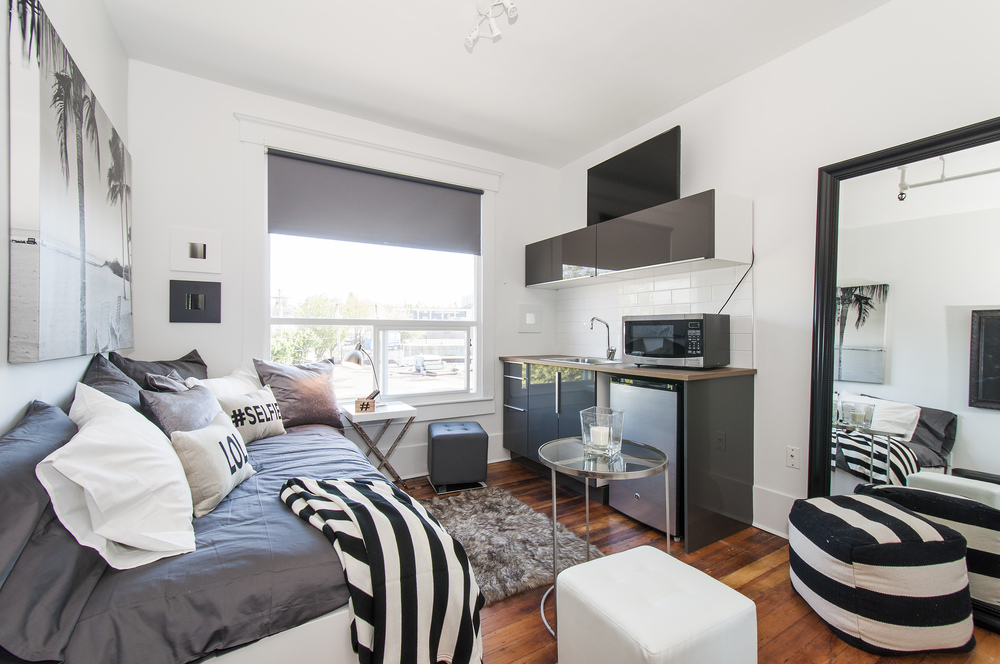- Bob Ross Nuke Test
- Jul 12, 2016
-

by Games Forum
|
quote:I can't wait to see the amenities, Onni does good amenities. quote:Can we see the indoor greenhouse area? It's very exciting.
Yeah, you stupid over-leveraged fucks, that's awesome. Except Onni is also known for being a pack of blithering incompetance and your $900k condo on Main street is rife with construction issues, the building exterior is being resealed for the third time in two years, the interiors look like hot garbage and one elevator is going to be out of service for months because the brakes are hosed.
loving yuppies.
|
 #
?
Aug 12, 2016 22:47
#
?
Aug 12, 2016 22:47
|
|
- Adbot
-
ADBOT LOVES YOU
|

|
|
#
?
May 9, 2024 19:11
|
|
- Ambrose Burnside
- Aug 30, 2007
-

pensive
|
zizek is good at coming up with pithy-thoughtful Pop Philosophy Quips and also concealing his newfound obsession with trans people behind hegelian squid-ink
|
 #
?
Aug 13, 2016 01:04
#
?
Aug 13, 2016 01:04
|
|
- UnfortunateSexFart
- May 18, 2008
-

ð» ððð« ð·ðð
ð·
ð ð ð ð« ð®ð ð¾ð
ð ð¡ððð


|
Article from my local paper. Note the north shore is probably the least Chinese of all the "close to downtown" suburbs, and most of it averages $2-3 million for a single family home.
quote:North Shore Realtors predict property market cool-down
Real estate industry awaiting full impact of province�s new 15% property tax for foreign buyers
Local real estate agents say they know of several multi-million-dollar real estate deals collapsing and predict the hot North Shore housing market will cool slightly in the wake of a new 15-per cent provincial tax on property purchased by foreign buyers.
�It�s one of the most shocking events that�s ever arrived in our industry,� said Brent Eilers, a longtime West Vancouver Realtor with Re/Max. �Nobody really knows how it will unfold.�
Eilers said the new foreign buyers� tax is bound to have an impact, particularly in markets like West Vancouver and North Vancouver, which have been �incredibly dependent on offshore money or new money� that�s come from sales to foreign buyers in other areas of the Lower Mainland.
On July 25, the province announced it was putting the new 15-per cent tax on property purchases by foreigners in place in response to growing concerns that offshore money has fuelled exponential increases in housing prices in the Lower Mainland putting home ownership beyond the means of most working people.
Statistics released by the province showed that in a five-week period between June 10 and July 14, about 10 per cent of residential real estate deals in Metro Vancouver involved foreign buyers.
Anecdotally, real estate agents have estimated a significant number of deals at the higher end of the market in North and West Vancouver have involved foreign buyers.
So far, nobody knows what the long-term impacts of the new tax will be, say local Realtors. �Everybody�s sitting back and waiting for the repercussions,� said Allan Angell, another longtime West Vancouver Realtor. �The repercussions could be huge or people could just sit back and say we don�t care.�
The real estate industry has criticized the province for applying the tax to deals that were already finalized but had a closing date after Aug. 2 � when the tax took effect.
�The biggest frustration we had was they did not grandfather existing contracts,� said Dan Morrison, an associate broker with Re/Max Crest Realty in North Vancouver and president of the Real Estate Board of Greater Vancouver. While a number of buyers and sellers were able to move up the closing date of their deals and avoid the new tax, others weren�t � leaving foreign buyers with a significant extra cost they didn�t anticipate, said Morrison.
On a $2-million house sale, the new tax means an extra $300,000. �They�ve given foreign buyers a financial incentive to walk away,� said Morrison. �Then the domino effect starts.�
Eilers said he knows of several �sizable purchases� where the real estate deals may fall apart. �There was a $13-million house in West Van that just got nailed with it,� he said. �It�s hard to see in some of these transactions there�s a clear path to the finish line.�
Realtor Steve Taylor of MacDonald Realty in West Vancouver recently sold a house for a retired couple in Ambleside to buyers from mainland China for about $2.5 million. But the deal is now subject to the new tax, adding a significant cost, which the buyers say they don�t have the money for. Meanwhile, the West Van couple has already bought another home on the North Shore. Until the closing date, said Taylor, �They have to sit and hope for the best.�
Since the new tax went into place, the housing market on the North Shore � particularly for detached homes � has been eerily quiet compared to the buying frenzy and bidding wars seen in the spring.
So far, Realtors say it�s unclear whether that�s a result of the tax, a general cooling of the market or a seasonal summer downturn.
There have not been �anywhere near the normal pace of sales� since June, said Eilers.
The number of sales for detached homes in July were down 45 per cent over last year and down 15 per cent in North Vancouver for the same time period, said Eilers. The 44 West Vancouver sales in July 2016 contrast with the 74 sales in 2015 and the 153 sales there in February 2016.
August has shown an even more pronounced dropping off. The average number of August sales in West Van is about 60. Last year there were 80 sales for the month. So far this month, there have been two.
�Things have slowed down dramatically,� said Eilers, adding that doesn�t necessarily mean the pattern is permanent. The fall buying season is typically busier than the summer. �Everybody�s taking a time out. Everybody�s going to be holding their breath the first couple of weeks of September.�
- See more at: http://www.nsnews.com/news/north-shore-realtors-predict-property-market-cool-down-1.2321851#sthash.z8YTOTla.dpuf
|
 #
?
Aug 13, 2016 01:12
#
?
Aug 13, 2016 01:12
|
|
- ianmacdo
- Oct 30, 2012
-

|
This is all so hilarious, remember how many articles and people here were like "Chinese money? Don't be racist!" and now look at all the crying.
|
 #
?
Aug 13, 2016 01:23
#
?
Aug 13, 2016 01:23
|
|
- Lexicon
- Jul 29, 2003
-

I had a beer with Stephen Harper once and now I like him.
|
This is all so hilarious, remember how many articles and people here were like "Chinese money? Don't be racist!" and now look at all the crying.
If we had local media worth a drat, they would be endlessly highlighting this.
|
 #
?
Aug 13, 2016 02:02
#
?
Aug 13, 2016 02:02
|
|
- ocrumsprug
- Sep 23, 2010
-

by LITERALLY AN ADMIN
|
If we had local media worth a drat, they would be endlessly highlighting this.
Hungarian refugee family has to walk away from their life savings due to foreigner tax. News at 6.
|
 #
?
Aug 13, 2016 02:10
#
?
Aug 13, 2016 02:10
|
|
- Baronjutter
- Dec 31, 2007
-

"Tiny Trains"

|
My friend's rich dad wanted to sell his uplands mansion like a year ago and buy a smaller house since he's on his own in a loving mansion. So he bought what I'd consider quite a large luxury house in Oak Bay, but he was having trouble selling his house, claiming everyone was trying to low-ball him. In this market I can't imagine what price he was asking in the Victoria market that was too high. So instead of selling he's renting the new house out and staying put in the huge house untill "someone's willing to pay what it's worth" and "the rent almost covers the mortgage on the 2nd house, so it's a great investment". He's wary of maybe being in a bubble, so his plan is to sell at the peak of the market.
I told her this is insane and unless her dad has a time machine, by the time he knows he's at the peak of the market it's way too loving late. He needs to sell his big house right now and enjoy his lottery winnings. But nope, he's a long term investor and is going to hold onto both houses because the market keeps going up so you'd be a fool to sell right now.
Also I'm shocked if that tax is actually going to do anything, I don't think the tax its self is going to crash the market, but the idea that the government is starting to "do something" because there's an actual problem might. So a foreign investor who could easily absorb the 15% decides not to buy not because of the tax, but because it represents what may just be a first step in making Vancouver a less attractive real-estate investment location.
Baronjutter fucked around with this message at 06:10 on Aug 13, 2016
|
 #
?
Aug 13, 2016 06:03
#
?
Aug 13, 2016 06:03
|
|
- namaste friends
- Sep 18, 2004
-

by Smythe
|
http://www.macleans.ca/economy/realestateeconomy/young-people-afford-house-roommates/
quote:
How do young people afford a house? They find roommates.
With house prices soaring out of reach, some buyers are going to extreme lengths to get into the market
The last time Tabby and Jeff Rose lived with roommates was right after university and, as they will tell you, it sucked. There was hardly any privacy. Personalities conflicted. Their cat couldn�t stay with them because one roommate had allergies. They moved out shortly thereafter and for the next seven years, the Millennial couple lived in rented apartments while building up their own gaming company in Toronto. This past March the two made a major financial decision that would necessitate living with a roommate once again: they bought a home.
It was a �now or never� scenario, recalls Tabby, as she chats about buying the high-ceilinged 850-sq.-foot condo in the city�s trendy Junction neighbourhood. Since they got married in 2012, the average sale price of a home in the Greater Toronto Area skyrocketed from less than $500,000 to more than $700,000 today. If they continued renting any longer, they worried, they�d never own a home in the city. Even with a gift from their parents, which covered a chunk of the down payment, the monthly mortgage payments and pricey condo fees put the coveted one-bedroom-plus-den home out of reach.
Enter their friend Jo Daly, who was looking for a place to rent. They knew they�d get along with her�Daly was maid of honour for their wedding�but the main reason Jeff and Tabby reached out to her was �purely financial,� Tabby says. �We can�t pay the bills without her.�
The cost of owning a home in hot markets like Toronto and Vancouver go beyond the eye-popping price tags, and are measured in the sacrifices buyers have had to make�just as dreams of owning a detached home in a leafy neighbourhood have given way to cramped condos, others are now giving up on the notion of privacy.
�As people feel they�re being priced out, they get more creative in how to get into the market,� says Ryan McKinley, a senior mortgage manager at Vancity. For some, entering the housing market requires letting strangers in their home.
�When you look at the home market for first-time buyers, to get in can seem like an insurmountable task,� says Aaron Zifkin, Airbnb�s country director for Canada. �In a lot of our host community meet-ups, we�re seeing a lot of people who are really excited being able to bridge that pay point by earning a little extra income from a nanny suite.� Or, if no nanny suite exists, the pullout couch in the living room might do.
In Vancouver, for example, more than half of the money taken in by the 4,200 Airbnb hosts went to pay for necessities like the rent, mortgage or groceries, according to a company report released in July. With the typical host earning $6,500 each year, more than half of them said the extra cash was a reason they could afford to stay in their home. Seven per cent said the money helped them avoid foreclosure.
Other families are getting into the housing market by not buying the whole house. Vancity, for example, offers �mixed mortgages,� whereby two parties co-buy a home.
Smiley Nesbitt and his wife own three-eighths of their 3,200-sq.-foot home in East Vancouver. The other portion belongs to another family, their �housemates,� as Nesbitt calls them. The arrangement has allowed both sides to buy in an area that would otherwise be out of their price range. Each party has its own unit, including kitchen and bathroom, while the backyard, including the garden and deck, is shared. If the house needs structural repairs or landscaping work, Nesbitt�s family covers their equivalent portion of the bill. Not only did this allow Nesbitt�s family to live closer to their work, thereby shortening their commute and allowing more family time, the other family�s kid �is a little bit older and has turned into an in-house babysitter,� Nesbitt says.
Since 2007, the living arrangement has worked out well, with the most contentious discussion being over which shade of green they should paint the outside of the house. (�I live with three graphic designers,� Nesbitt laughs.) That is, until earlier this year when his housemates started talking about selling their share of the home and cashing out of Vancouver�s housing market. As per the initial agreement, each family had first right of refusal to buy out the other at a price based on three independent appraisals. But that would have required Nesbitt to take out a mortgage of more than $1 million, as the value of their home had more than doubled since they bought it. �It became quite stressful,� Nesbitt says. �In the end, they decided to stay.�
As a realtor in Vancouver, Nesbitt uses his own experience to persuade clients to think about co-buying. �Part of being in a city where everyone wants to live, the prices are going to get to the point where you can�t have a white picket fence and backyard and each person with their own house,� he says. �A lot of the time when I sit down with clients, I�m mitigating their expectations to the point where it clicks and they say �maybe this is a good idea.� �
This generation of young homebuyers seems receptive to the idea. Last year an RBC poll found that fewer than 12 per cent of 18- to 24-year-olds would consider co-buying a home with a friend, yet just one year later that figure had risen to one in four.
Still, it�s one thing to buy a house but maintain separate entrances and units. It�s altogether different to share the same fridge, couch, TV and bathroom. The Roses and Daly in Toronto insist there are benefits to their unconventional arrangement. Daly buys the groceries, Jeff makes dinner and Tabby cleans up. �Nobody�s going to complain about having an extra pair of hands to deal with chores like getting groceries,� Jeff says. �And with how much we work, we don�t have a ton of social time, so it�s nice to come home to another face.�
But there are also downsides. If either Tabby or Jeff want to do laundry, they have to make sure their roommate isn�t in bed, as the washer and dryer are in her room. As a courtesy, even though they own the place, they still ask for permission to have friends over. They can also forget about intimacy when the mood suddenly strikes but the roommate is home. �We�ll just wait,� Tabby admits. That waiting game also applies to starting a family, as someone is occupying the space that would be the nursery. And if Daly moves out sometime soon, they�ll need to find someone else to replace her, and fast. If no permanent roommate is willing to live in the den�which doesn�t have windows, by the way�Tabby says they�d consider becoming Airbnb hosts to help pay the bills, even though it�s �not totally appealing to me.� The inconvenience is part of the cost of being a homeowner in Toronto in 2016.
For now, as the three eat tacos together on a warm July evening while watching Brooklyn Nine-Nine, the arrangement seems to be working out great. �It�s like a step up from Airbnb,� Tabby says. �Or maybe a step down. [People are] touting this sharing economy as a good thing when we�re really just giving up personal privacy to pay for anything in our lives. It�s kind of grim.�
I really hope mcleans follows up with these losers when the bubble bursts.
|
 #
?
Aug 13, 2016 07:14
#
?
Aug 13, 2016 07:14
|
|
- namaste friends
- Sep 18, 2004
-

by Smythe
|
http://www.theglobeandmail.com/real..._medium=twitter
quote:
Financial fault lines: The earthquake risk of Vancouver�s condo boom
Driven by rising demand for condos amid soaring home prices, a new wave of costly � and often architecturally beautiful � high-rises is transforming the Vancouver skyline. But engineers say what some condo owners can�t see could potentially cost them more than they expected.
Two plates of earth deep below the Pacific�s surface about 100 kilometres off the British Columbia coast are threatening to cause a quake that would likely amount to the worst natural disaster in Canada�s history. According to Natural Resources Canada, there is a one-in-three chance that massive earthquake will hit the West Coast in the next 50 years.
While Vancouver�s skyscrapers adhere to a code designed to safely get people out of buildings in the event of an earthquake, engineers say that some structures could become uninhabitable after a powerful quake strikes.
�The problem is, in my mind, that people are buying condos in these new buildings and don�t realize that,� said Perry Adebar, the head of civil engineering at the University of British Columbia, noting that the less uniform and more irregular the structure of a high-rise building is, the more likely it will be damaged.
�They figure that, surely it�s designed well. To be totally clear, I don�t think anybody realizes it. The more exciting and interesting your building is, the more likely you won�t be able to use it after a significant earthquake.�
As the price of single-family housing has soared to unprecedented levels in Vancouver, the number of new condominium sales has increased, along with prices. According to the Real Estate Board of Greater Vancouver, the benchmark price for a condo in July was $510,600 in the region, up 27.4 per cent from the same month in 2015.
Urban Analytics, a company that tracks real estate data, said in a recent report that demand for new condominiums has been strong through this year�s second quarter, with more sales recorded in April, May and June than in any quarter since 2010. According to Urban Analytics, there were 3,439 concrete condominium units sold in the second quarter of this year. Sales in the first half of 2016 exceeded the number of sales when compared to the same time last year by 53 per cent. More high-rise condominiums are under construction and in development.
A report from the C.D. Howe Institute released last week warned that a massive earthquake in British Columbia could create a dire financial scenario in Canada. Insurance industry estimates peg expected losses from such a severe quake in the $75-billion range and some insurers say that number could be even higher.
According to the Insurance Bureau of Canada (IBC), fewer than half of B.C. residents have purchased earthquake insurance. In Vancouver, that rate is 55 per cent.
Aaron Sutherland, a spokesperson for IBC in Vancouver, says buildings typically have their own insurance and, if a structure is damaged, the deductible will be divided among the owners.
�It�s important to go out and discuss with your insurance representative and find out what you are protected for,� Mr. Sutherland said. �You can purchase insurance to cover you for that deductible.�
The City of Vancouver�s building code is adapted from the provincial code, which is derived from the National Building Code of Canada. Patrick Ryan, the city�s chief building official, says the building code has several provisions around environmental issues, energy, accessibility, fire and life safety, and seismic standards � particularly on how to deal with upgrades and retrofitting � that are unique to Vancouver.
When it comes to seismic provisions, the Vancouver code is meant to protect the lives of the occupants of a building, but does not mean the building will be serviceable after an event, Mr. Ryan said.
�The code is a minimum,� he said. �You don�t have to follow the minimum. If an owner chooses to overdesign a building, they can do that and there�s no problem with that.�
Vancouver also has an extra provision that requires a designated structural engineer to conduct the design work on larger buildings, including high-rise condos. Those designs are then peer-reviewed by a second engineer to ensure they are sound.
Still, Mr. Adebar says there are misconceptions about the building code.
�There is a huge disconnect between what people think the building code achieves, people�s expectations of how a building code will perform in an earthquake versus what we�re doing when we write the building code and what our expectations are,� he said.
Many buildings in Christchurch, New Zealand, were unusable after a 6.3-magnitude earthquake hit, with an epicentre just 10 kilometres from city, in 2011. That quake offered an important learning experience for Vancouver, says Andy Metten, a managing partner at Bush Bohlman and Partners, an engineering firm in Vancouver.
�Several fairly modern buildings � the Hotel Grand Chancellor for example � had to be demolished after the event. That building was leaning and had significant damage and a lot of that was felt to be due to the irregularity of the building,� said Mr. Metten.
�Many buildings that were built quite recently were torn down. The issues are that the buildings with irregularities that are much more attractive from an aesthetic point of view do tend to perform not quite as well as those that are more regular.�
Mr. Adebar, a member of the Standing Committee on Earthquake Design that advises on seismic standards for the building code, says today�s building code does not provide any requirements or guidance on how to design a building so it will be more likely usable after an earthquake. Whether a building will be usable depends on many factors, including soil conditions and the architecture of the building. He says it is difficult for a layperson to distinguish what an irregular building is, and that not every building that appears irregular on the outside is the same internally. Many irregular buildings will be structurally normal on the inside, he says, thanks to good architecture and clever engineering.
�On the other hand, there are buildings that are as irregular internally as they seem externally, and these are the buildings that are much more likely to be damaged during an earthquake,� he explained.
�Such buildings get built because architects do not appreciate the direct connection between structural irregularity and the likelihood that a building will be damaged during an earthquake, and engineers are constrained to design the building to meet the minimum requirements of the building code.�
Maura Gatensby, a practice adviser with the Architectural Institute of British Columbia, an independent body that regulates the profession of architecture, says all buildings meet the same seismic standards in the end, regardless of architectural differences.
�All buildings are required to reach a certain level and there are certain things like irregularities that create issues for seismic [standards], but the code requires that you design to address it. It basically equalizes everything out and it will comply with the code,� Ms. Gatensby said. �Everything ends up getting to the same level.�
While aspects of some modern buildings are a concern, most of the focus has been on retrofitting older buildings that were constructed when previous building standards were in place.
Jeff Yathon, a civil engineering PhD candidate at UBC, has spent the last three years analyzing the designs of about 350 mid� and high-rise buildings constructed before 1980 in Vancouver, trying to determine how vulnerable the structures are. While he doesn�t foresee building collapses in the event of a strong earthquake, he says it was slightly concerning that many similar buildings were often clustered in the one area because it is likely that if one is damaged, many will be.
Mr. Adebar hopes that the code continues to improve over the coming decades.
�I don�t know the solutions, at least for the older buildings, but for the new buildings I think there is a solution and it�s one of just everyone becoming aware of what the situation is,� he said.
�I don�t know how long it�s going to take, but I think maybe 10 years from now, 20 years from now, our building code will have what it takes to guide designers so buildings not only save lives, but are actually usable after an earthquake.�
hahaha
|
 #
?
Aug 13, 2016 07:25
#
?
Aug 13, 2016 07:25
|
|
- namaste friends
- Sep 18, 2004
-

by Smythe
|
http://torontolife.com/real-estate/houses/the-chase-forest-hill-north/
quote:
The buyers: Farid Sharifi, a 35-year-old senior renewable energy specialist for WWF Canada, and his wife, Elena Khanlarkhani, a 31-year-old project manager at a construction firm.
The story: Sharifi and Khanlarkhani both immigrated to Canada from Iran�she in 2007 and he in 2008. They met in 2010, when both were university students. Four years later, after they were married, they moved into a two-bedroom condo near Bayview and Sheppard owned by Sharifi�s parents, who were living abroad. They were comfortable there, but the housing market�s galloping price inflation had them worried. They figured they should get in now, before entry-level homes hit seven figures. The couple put together $120,000 in savings and began looking for a $600,000 toehold in the Eglinton and Allen area.
quote:
After several non-starters, Sharifi and Khanlarkhani began to wonder what a larger down payment would fetch. Parents on both sides offered $80,000 each, but even with an extra $160,000, their agent warned them that they likely wouldn�t win a bidding war on this property, so they didn�t try.
quote:
494 St. Clements Avenue (near Avenue and Eglinton). Listed for $999,000, sold for $1,217,000
The couple offered $30,000 over asking on this detached home�just west of the previous candidate�and then upped their offer to $1.16 million when they found out there were several bidders. It still wasn�t enough. After leveraging virtually all of the financing available to them, they offered $1.217 million to seal the deal. Sharifi says he and Khanlarkhani love that the street is �buried in trees; the first time we saw it, we knew it was our dream house.�
So this is what the TD Mortgage calculator says they'll be paying a month.

https://www.linkedin.com/in/faridsharifi
https://www.linkedin.com/in/elenakhani
I'm gonna be generous and guess Farid makes 120k/year and Elena brings in 70k.

http://easytaxca.com/payroll-calculator-2016/
Well, I mean that looks ok but this math was done with a 30 year 2.6% mortgage. so lmao i guess
|
 #
?
Aug 13, 2016 07:39
#
?
Aug 13, 2016 07:39
|
|
- Fluffy Chainsaw
- Jul 6, 2016
-

I'm likely a pissant middle manager who pisses off IT with worthless requests. There is no content within my posts other than a garbage act akin to a know-it-all, which likely is how I behave in real life. It's really hard for me to comprehend how much I am hated by everyone.
|
I'm gonna be generous and guess Farid makes 120k/year and Elena brings in 70k.
.... no. Glassdoor pegs a WWF specialist salary in Canada at $51-54k. No data on senior specialists is available, but in the US, they make between $60 and $80k (which will be less in Canada). Payscale says that the median salary for a 30 year old project manager with 10 years of experience in construction in Toronto makes $80k. They are buying a 1+Den and sharing it with a roommate, so it's fair to say that she's probably not at the high end of ability. Run that again assuming he's making $60 and she's making $70, and see what you get.
|
 #
?
Aug 13, 2016 15:45
#
?
Aug 13, 2016 15:45
|
|
- leftist heap
- Feb 28, 2013
-

-
Fun Shoe
|
.... no. Glassdoor pegs a WWF specialist salary in Canada at $51-54k. No data on senior specialists is available, but in the US, they make between $60 and $80k (which will be less in Canada). Payscale says that the median salary for a 30 year old project manager with 10 years of experience in construction in Toronto makes $80k. They are buying a 1+Den and sharing it with a roommate, so it's fair to say that she's probably not at the high end of ability. Run that again assuming he's making $60 and she's making $70, and see what you get.
This couple is buying a detached in Toronto without roommates. Dude has an MBA, if he's making $60k he's doing something very very wrong.
|
 #
?
Aug 13, 2016 17:19
#
?
Aug 13, 2016 17:19
|
|
- Bob Ross Nuke Test
- Jul 12, 2016
-

by Games Forum
|
This couple is buying a detached in Toronto without roommates. Dude has an MBA, if he's making $60k he's doing something very very wrong.
This is Canada, our white collar economy is hot garbage and getting worse and degrees mean jack poo poo for your salary here. I make more hanging around outside of the windows than most of the people inside of them. Including software developers.
|
 #
?
Aug 13, 2016 20:20
#
?
Aug 13, 2016 20:20
|
|
- leftist heap
- Feb 28, 2013
-

-
Fun Shoe
|
This is Canada, our white collar economy is hot garbage and getting worse and degrees mean jack poo poo for your salary here.
lol, this isn't true at all. We went over this poo poo a few pages back. More education still means more money and it's basically never not been true and probably won't ever not be.
|
 #
?
Aug 13, 2016 20:40
#
?
Aug 13, 2016 20:40
|
|
- leftist heap
- Feb 28, 2013
-

-
Fun Shoe
|
Just because people with more education make more than others with less education doesn't mean this guy definitely makes 100k with his ~management~ degree
Go back and quote the part where I said he "definitely" makes $100k. People generally don't spend $100k on an MBA to make $60k unless they're huge fuckups or it's a vanity thing (which maybe working at WWF Canada is, who knows). The average Rotman grad actually makes almost $100k right out of school. I'm gonna guess that couple is doin just fine.
|
 #
?
Aug 13, 2016 22:24
#
?
Aug 13, 2016 22:24
|
|
- namaste friends
- Sep 18, 2004
-

by Smythe
|
I sincerely wish for 10 years of crippling economic depression to teach all Canadians a loving lesson they won't forget for at least 5 years.
|
 #
?
Aug 14, 2016 20:35
#
?
Aug 14, 2016 20:35
|
|
- namaste friends
- Sep 18, 2004
-

by Smythe
|
5 years seems awfully optimistic from someone as pessimistic as you. Are you going soft on us?
You're right Canadians are too loving stupid to learn any historical lessons about economics
|
 #
?
Aug 14, 2016 23:08
#
?
Aug 14, 2016 23:08
|
|
- I would blow Dane Cook
- Dec 26, 2008
-

Can't post for 22 hours!
|
The only economics lesson you need is that house prices double every ten years.
|
 #
?
Aug 15, 2016 01:02
#
?
Aug 15, 2016 01:02
|
|
- leftist heap
- Feb 28, 2013
-

-
Fun Shoe
|
Similar to the previous reddit link, spot the landlords:
https://www.reddit.com/r/VictoriaBC/comments/4xqktc/can_anyone_explain_to_me_how_the_hell_our_rental/
quote:
Tenant protection is pretty crazy in Victoria as well, which really impacts demand in an investment-friendly market.
quote:
As a soon to be former landlord you can also blame the ridiculous protections tenants receive. The damage done to my house is not worth having renters anymore.
Ridiculous tenant protections such as... err.. hmm...
|
 #
?
Aug 15, 2016 06:51
#
?
Aug 15, 2016 06:51
|
|
- leftist heap
- Feb 28, 2013
-

-
Fun Shoe
|
also comedy:
quote:
I would much rather make what I make in a month from my tenant in a few nights from air bnb than deal with the RTB or lovely tenants again
permalinkembedsaveparentreportgive goldreply
[�]Shugalumpz [score hidden] an hour ago
Amen. We had brand new carpets and our counters trashed within a year by a renter who passed all our checks. Just sold that place last month. Not sure i would be a landlord again.
permalinkembedsaveparentreportgive goldreply
[�]MileZeroC [score hidden] 26 minutes ago
Correct. Air Bnb avoids this mess.
Yep, nothing could ever go wrong renting out your place on AirBnB. Definitely nobody is going to wreck the place or hold a drug fueled orgy there no sir.
|
 #
?
Aug 15, 2016 07:05
#
?
Aug 15, 2016 07:05
|
|
- I would blow Dane Cook
- Dec 26, 2008
-

Can't post for 22 hours!
|
also comedy:
Yep, nothing could ever go wrong renting out your place on AirBnB. Definitely nobody is going to wreck the place or hold a drug fueled orgy there no sir.
https://www.youtube.com/watch?v=nntbnx8Etlw
|
 #
?
Aug 15, 2016 07:18
#
?
Aug 15, 2016 07:18
|
|
- RBC
- Nov 23, 2007
-

IM STILL SPENDING MONEY FROM 1888
|
As a landlord it is my right to do no work, and sit at home and cash cheques from you every month. My right!!!!
|
 #
?
Aug 15, 2016 12:00
#
?
Aug 15, 2016 12:00
|
|
- triplexpac
- Mar 24, 2007
-

Suck it
Two tears in a bucket
And then another thing
I'm not the one they'll try their luck with
Hit hard like brass knuckles
See your face through the turnbuckle dude
I got no love for you
|
http://business.financialpost.com/p...ill-keep-rising
quote:
Developers sitting on land in Toronto�s heated housing market in hopes prices will keep rising
Housing prices continue to rise in the Greater Toronto Area because of land shortages that are at least partially being driven by builders sitting on real estate in hopes of a rising market, says a new report.
CIBC deputy chief economist Benjamin Tal said provincial legislation which has created scarcity of land around the Toronto region has developers feeling confident that prices have nowhere else to go but up, leaving them in no hurry to erect new housing.
�If you are an owner of potential development land and you are well aware that Places to Grow (provincial policy) will result in in shortage of land by even more than currently anticipated, you will probably not be eager to sell,� said Tal, in his report released Monday.
The economist took dead aim at the province�s Places To Grow Act which has limited the availability of serviced land for ground-oriented housing and set aggressive intensification and density targets.
Tal says the Greenbelt Plan, which restricts the type of development that can take place in the area that rings the city is one factor but intensification policies might be playing a larger role. The plan mandated that by 2015 and every year after municipalities must make sure at least 40 per cent of new developments take place in current urban boundaries.
Under the plan that intensification can take place through redevelopment of vacant or brownfield land but mostly it has meant development of more dense forms of housing. The province now wants to increase that minimum to 60 per cent.
�The higher the rate is, the less land will be released in the outskirts � adding to the lack of land supply,� says Tal.
Already the land value of low density units is up 100 per cent over the last decade and 150 per cent for medium density lots, which Tal says is the prime target for intensification. In some cities around the GTA, like Markham, Newmarket and Richmond Hill, land costs make up more than half of the total price of a home.
The economist says the obvious solution to supply problems is to release more land � something he concedes is unlikely. In the absence of that change in policy, he�d like to see Queen�s Park hold off from increasing intensity levels from 40 per cent to 60 per cent until the exact impact it will have can be determined.
Tal says low interest rates � now below three per cent on five-year locked in money � are not the reason for higher prices but they have prevented behaviour adjustment to current prices because people can afford their loans based on debt-service rations. He thinks the federal government should increase the qualification rate for mortgages, thereby giving consumers not as much access to debt.
On the thorny issue of foreign buyers, which last month saw British Columbia impose a 15 per cent additional property transfer tax on buyers from outside the country, Tal says they are not the main problem in the GTA. He estimates they account for five per cent of saled with 10 per cent made up of satellite sales � money coming from abroad to support a unit occupied by a relative.
He prefers a �flipping tax� on foreigners and a tax for vacant units � something the British Columbia government has given the city of Vancouver the power to enforce as part of its new sweeping real estate regulations.
�The future trajectory of the GTA�s housing market is not written in stone. It is largely a function of the ability and willingness of the market to adjust to high and rising valuations,� says Tal, who believes the most obvious fix should come from the supply side.
Ugh drat government holding us back from cheap houses. Release the land!! More supply!!!
|
 #
?
Aug 15, 2016 12:43
#
?
Aug 15, 2016 12:43
|
|
- Adbot
-
ADBOT LOVES YOU
|

|
|
#
?
May 9, 2024 19:11
|
|
- Reince Penis
- Nov 15, 2007
-

by R. Guyovich
|
Every article about Toronto shoehorns in a bit about the Greenbelt and former PC leader Hudak just became president of the Ontario Real Estate Association. I can see the writing on this wall.
|
 #
?
Aug 15, 2016 13:01
#
?
Aug 15, 2016 13:01
|
|






































